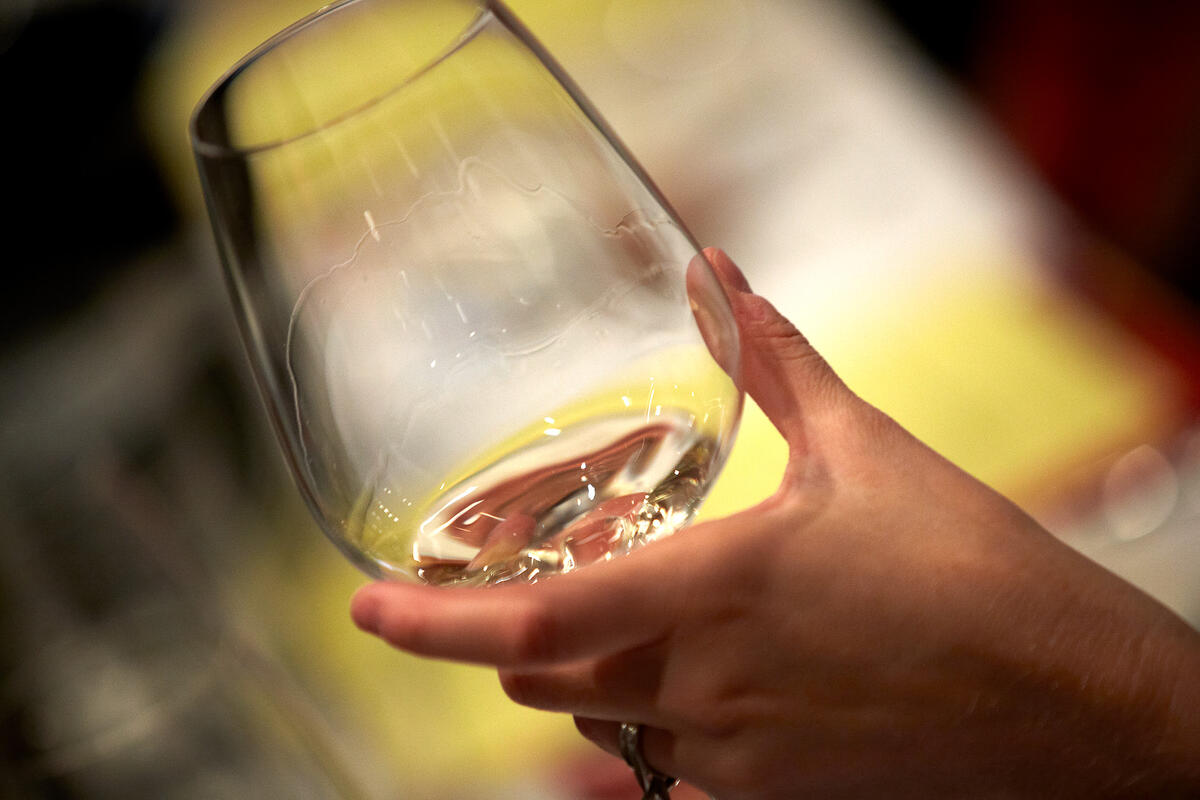In his 30-plus years in the wine business, Tony Goitia has seen an industry evolve and become more accessible. It's a good thing. Wine is now considered a drink for more than just the connoisseur.
"I think 35 years ago wine was a beverage for the elite. ... Today, it's hard to find people who don't drink wine," he said.
Goitia, a territory manager with Southern Wine & Spirits, teaches a UNLV class about international wine. In addition, he has helped in a variety of ways with UNLVino for the past 30 years. These days, he organizes student volunteers and works with event vendors. He has attended hundreds of wine tastings through the years, and happily sheds light on a few pitfalls and tips for those new to the wine world as well as seasoned veterans.
Newbies...
If you're new to wine, Goitia says, it's important to ask questions. The people manning booths at a wine tasting are very knowledgeable and invite inquiries about their products.
And, don't be ashamed to go for the white zinfandel. It's hands down the most popular wine out there for a reason: it's sweet. White zinfandel helps new wine drinkers "break in," Goitia adds; as their tastes mature, they usually gravitate toward dryer varietals.
"You don't start an infant on steak. Most white zins are 3 to 4 percent sugar. A lot of wine geeks can't believe they ever drank it," he said. "But that's ok. A novice starts sweet and ends up dry."
Food and water...
Through the years, UNLVino has evolved from a wine tasting to a food and wine event. Now in its 40th year, UNLVino will honor celebrity chef Wolfgang Puck. Past honorees have included chefs Thomas Keller, Michael Richard, and Todd English, among many others.
But food has another role for attendees. Goitia says it's important to eat food before the event and to drink plenty of water throughout it to stay hydrated. It will help keep away the tipsy feeling so you can focus on the "work" of finding great wines.
Abandon familiarity...
You know which wine you like, and you see it on the program list. Now resist the urge to drink it. Your taste buds won't be as open to new flavors if you start with that familiar old fling, adds Goitia. "A big mistake people make is they go to table one or two, and they may know the wines, and they start drinking. Until you expand your horizons, you are really missing out."
The glass half empty...
Too often, Goitia has seen tasters ask for a "glass" of wine. They should only be asking for a small taste, an ounce or two. "If you get a glass, within a half hour you're either drunk or your taste buds are shot," he added.
Take notes...
Before your first drink, read the program and chart your course. Start making notes about wines that seem interesting. Those notes are a good reminder the next day when you have a hard time remembering what you liked. Your camera is also a handy tool. Take pictures of the bottles of wine you enjoyed.
Ignore these myths...
There are still plenty of misconceptions about wine and how to pair it with food. Goitia says assuming white wine goes with fish and red wine goes with red meat is the biggest one out there. "People still are convinced that is the rule of thumb and nothing could be further from the truth," he said. "There's no right or wrong. It's just what you like."
After more than three decades in the business, the wine pro says expertise can help guide a new drinker but shouldn't create rules. Goitia, himself, loves champagne, white wines from southern Italy and, above all, "a wine that makes me smile." It's an unconventional standard for finding a "good" wine, he admits. "I really don't know what a wine expert is," he said. "You learn every day. ... If I had my own restaurant and made my own wine list, it'd be the worst one in town. It would be a terrible list because it would only include what I like."



